
Allied Health courses in South Australia
Course providers in South Australia
The following providers offer Allied Health courses in South Australia.




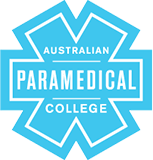




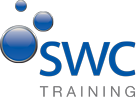
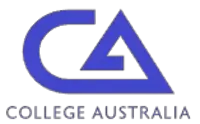







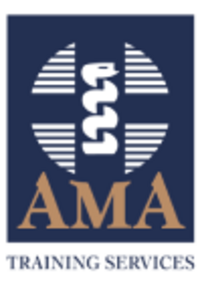





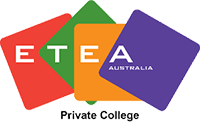






















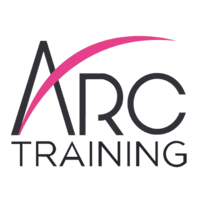








Career Pathfinder
Skills shortages + AI Exposure
Discover in-demand careers and understand how each role may be impacted by AI and automation.
- See in-demand occupations across Australia
- Check AI Exposure ratings
- Compare training duration and average income
Common questions
Occupational therapists help patients perform tasks in daily life, while physiotherapists help patients improve their movement, strength and function. The term occupation refers to everyday life tasks, while physiotherapy refers to physical therapy. Both are science-based allied health roles that aim to improve quality of life through prevention, maintenance and treatment.
 Stephen Charlton
Stephen Charlton
You can become qualified to work as an occupational therapist by completing one of the following degrees, depending on your educational pathway:
- Master of Occupational Therapy (postgraduate degree)
Average duration: 24 months - Bachelor of Occupational Therapy (Honours)
Average duration: 4 years - Bachelor of Occupational Therapy
Average duration: 4 years
 Stephen Charlton
Stephen Charlton
You can become qualified to work as a physiotherapist by completing one of the following degrees, depending on your educational pathway:
- Doctor of Physiotherapy (postgraduate degree)
Average duration: 3 years - Master of Physiotherapy (postgraduate degree)
Average duration: 24 months - Bachelor of Physiotherapy (Honours)
Average duration: 4 years - Bachelor of Physiotherapy
Average duration: 4 years
 Stephen Charlton
Stephen Charlton
Yes, you need to complete an accredited degree to work legally as an occupational therapist or physiotherapist in Australia. The two core pathways are completing a bachelor’s degree or a postgraduate degree. The Occupational Therapy Council of Australia and Australian Physiotherapy Council are responsible for accrediting such courses.
 Stephen Charlton
Stephen Charlton
Yes, overseas-qualified practitioners can work in Australia by registering with the Occupational Therapy Board of Australia or Physiotherapy Board of Australia. Practitioners who are currently registered with the Occupational Therapy Board of New Zealand or Physiotherapy Board of New Zealand can apply directly for Australian registration. Other overseas-qualified practitioners have to fulfil the requirements listed on the relevant webpages of the Occupational Therapy Board of Australia and Physiotherapy Board of Australia.
 Stephen Charlton
Stephen Charlton
If you have already completed an approved degree in a different discipline, you can gain an accredited postgraduate degree to become qualified to work as an occupational therapist or physiotherapist. Examples of such degrees are a Master of Occupational Therapy, Master of Physiotherapy and Doctor of Physiotherapy. Postgraduate degrees in these fields may have additional entry requirements, including but not limited to health-related prerequisite subjects.
 Stephen Charlton
Stephen Charlton
In some cases, completing vocational education and training (VET) in a related discipline can allow you to meet the entry requirements for a bachelor’s degree in these fields. Entry requirements vary between educational providers. Some providers offer a VET entry pathway with a minimum of a Certificate IV, but others require a minimum of a diploma or advanced diploma. Some providers do not offer a VET pathway for these courses at all. Therefore, it’s wise to confirm the entry requirements for your desired bachelor’s degree before starting a VET course.
 Stephen Charlton
Stephen Charlton
In addition to completing an accredited degree, occupational therapists and physiotherapists will need to register with the Occupational Therapy Board of Australia or Physiotherapy Board of Australia to work in Australia. The Australian Health Practitioner Regulation Agency (AHPRA) administers practitioner registration on behalf of these boards. There are different requirements to gain registration for Australian-qualified practitioners, New Zealand-registered practitioners, and other overseas-qualified practitioners.
 Stephen Charlton
Stephen Charlton
Career paths for these professions include independent contracting, starting a practice, working in community care, paediatrics, mental health, rehabilitation, disability, medical or aged care sectors).
 Stephen Charlton
Stephen Charlton
Jobs and Skills Australia reports that the median full-time weekly earnings for occupational therapists and physiotherapists in 2024 are $1,526 and $1,710, respectively. These figures can be contrasted with Australian workers of all occupations, who earn a median full-time weekly income of $1,697.
 Stephen Charlton
Stephen Charlton
There is a significant demand for occupational therapists across Australia. Jobs and Skills Australia’s Occupation Shortage List indicates that the labour market had a shortage of occupational therapists across all states and territories from 2022 to 2024.
 Stephen Charlton
Stephen Charlton
There is substantial demand for physiotherapists in Australia. Jobs and Skills Australia’s Occupation Shortage List indicates that the labour market experienced a shortage of occupational therapists and physiotherapists in most states and territories from 2022 to 2024.
 Stephen Charlton
Stephen Charlton
Working as an occupational therapist or physiotherapist comes with the satisfaction of directly helping to improve patients’ quality of life. Furthermore, the job market is promising, as Jobs and Skills Australia reports there is significant labour market demand for both professions. The future outlook is also positive, as Jobs and Skills Australia reports that the annual employment growth in 2024 for occupational therapists and physiotherapists is 2,200 and 4,100, respectively.
 Stephen Charlton
Stephen Charlton
Further reading


What can you do with a Certificate IV in Allied Health Assistance (Physiotherapy)?
3rd March 2022
What can you do with a Certificate III in Allied Health Assistance?
8th January 2020All courses
- HLT33021 Certificate III in Allied Health Assistance
- HLT47321 Certificate IV in Health Administration
- CHC43315 Certificate IV in Mental Health
- CHC53315 Diploma of Mental Health
- HLT52021 Diploma of Remedial Massage
- HLT41120 Certificate IV in Health Care
- HLT54121 Diploma of Nursing
- 22656VIC Advanced Diploma of Myotherapy
- BSB40215 Certificate IV in Business (Dental Practice Managers)
- HLTHPS010 Interpret and Use Information About Nutrition and Diet
- HLT33115 Certificate III in Health Services Assistance
- HLT43015 Certificate IV in Allied Health Assistance (Community Rehabilitation)
- Master of Sports Medicine
- HLT32912 Certificate III in Health Administration
- CHCSS00133 Induction to Disability Support
- HLT47715 Certificate IV in Medical Practice Assisting
- CHCMHS001 Work with People with Mental Health Issues
- CHC33015 Certificate III in Individual Support (Disability)
- HLT43015 Certificate IV in Allied Health Assistance (Occupational Therapy)
- Bachelor of Occupational Therapy (Honours)
- HLTADM010 Facilitate a Coordinated Approach to Client Care
- HLT33015 & HLT43015 Dual Certificate III in Allied Health Assistance & Certificate IV in Allied Health Assistance (Physiotherapy)
- Bachelor of Sport and Exercise Science
- 52895WA Certificate IV in Preparation for Health and Nursing Studies
- Master of Health Science (Osteopathy)
- HLT43015 Certificate IV in Allied Health Assistance (Nutrition and Dietetics)
More about Allied Health courses
Explore a wide range of Allied Health courses in South Australia designed to equip individuals with the skills they need to thrive in the healthcare sector. With a total of 27 courses available, learners can choose from various levels, including beginner courses for those with no prior experience, as well as advanced options for professionals seeking to enhance their qualifications. Some of the most popular beginner courses include the Certificate III in Allied Health Assistance and the Mental Health Co-existing Needs Skill Set, both of which provide foundational knowledge for aspiring healthcare workers in Adelaide and beyond.
For those with experience looking to advance their careers, our selection of advanced courses covers a diverse range of specialisations. Consider enrolling in the Certificate IV in Mental Health or the Diploma of Mental Health, both offering in-depth knowledge applicable within various healthcare settings in South Australia. Additionally, higher education options such as the Bachelor of Nursing and the Bachelor of Social Work are available for those ready to commit to longer-term studies and elevate their professional standing.
In addition to offering comprehensive Allied Health courses, the website categorises educational pathways in specialised fields including Psychology, Physiotherapy, and Occupational Therapy. This makes it easier for learners in South Australia to navigate their options and find the course that best suits their career aspirations. Whether you are interested in Naturopathy or Pathology, you can access valuable training in your chosen discipline.
Each course has been meticulously developed by Registered Training Organisations (RTOs) and respected industry bodies, ensuring learners receive quality education that meets current industry standards. With both Vocational Education and Training (VET) and higher education options available, aspiring and current healthcare professionals in South Australia can find the right course to enhance their knowledge and skills. Take the next step in your career today by exploring options such as the Bachelor of Speech Pathology or the Diploma of Remedial Massage, and discover how you can make a difference in the healthcare field.
